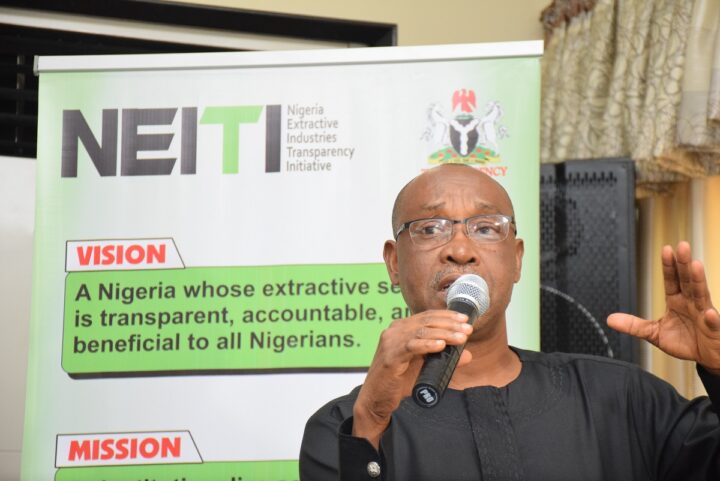The Nigeria Extractive Industries and Transparency Initiative (NEITI) has stated that the removal of fuel subsidies will free the country’s economy from bondage.
This was stated on Tuesday by Orji-Ogbonnaya Orji, executive secretary, NEITI at the stakeholders’ National Extractive Dialogue (NED) 2022 held in Abuja.
Orji said the removal of fuel subsidy needed to be considered so as to reduce the economic bondage faced, benefit the poor majority, and possibly hurt the few affluent who were currently rich in the subsidy transactions.
He also disclosed that the agency would soon release a research policy advisory on the cost of fuel subsidy to the country, adding that the publication would outline facts and figures to reinforce NEITI’s position on the subsidy removal.
Orji further noted that the dialogue was significant because the Extractive Industry Transparency Initiative (EITI) 2019 required implementing countries, including Nigeria, to disclose any transactions including licensing that were granted and amended.
“It will also require disclosing the terms and conditions for the exploration and exploitation of oil, gas, or minerals from January 2021,” Orji said.
“The petroleum Industry Act (PIA) 2021 also mandated Nigeria Upstream Petroleum Regulatory Commission (NUPRC) to publish the texts of any new license, lease or contract, or amendment immediately following the granting or signing of such texts.
“In June 2021, Nigeria was appointed the chair of the EITI global network on contract transparency. The network, which I chair, is tasked with the development of a framework for contract disclosures.
“The network has 20 EITI implementing countries, including Nigeria as members. I am pleased to report that NEITI is currently coordinating the efforts to deliver on these important tasks and ensure that the provisions of PIA regarding contract disclosures are activated.
“Specifically, an inter-agencies committee on contract transparency in the extractive sector has been set up and NEITI is serving as its secretariat. The overall goal is to enable governments, companies, civil society, and communities to evaluate the energy industry.
“These are aimed at proffering evidence-based policy recommendations for the efficient management of natural resource benefits and the transition from fossil fuel to a renewable energy regime with these countries as case studies.”
Orji, therefore, urged the governments of developing countries to pay attention to the energy transition, EITI advocacy for contract transparency, and just and equitable resource allocation.
He added that the issues faced in the oil and gas sector, when addressed, can help improve job creation, poverty reduction, peace, and security in any society.
On his part, Mele Kyari, group managing director, Nigeria National Petroleum Company Limited (NNPC), said the dialogue was important and acted as a reminder of what role NNPC was expected to play in the economic resources of the country.
According to Kyari, the extractive industry, especially oil and gas, are very important to countries, particularly the developing ones where there is a huge reliance on incomes derived from the extractive industry for national development.
Kyari, who was represented by Chris Akamairo, group general manager, governance, risk and compliance, NNPC, said natural resources from extractive industries were only beneficial when being extracted in a responsible cost-effective manner.
He added that the revenues accruing from these activities were promptly remitted to government coffers for the benefit of the citizenry.
“In the past, the opaqueness of the oil and gas industry operations in Nigeria has contributed to low performance both in terms of profitability and contribution to the economy,” Kyari said.
“Thus, the call for action by stakeholders on the need for a more transparent and accountable industry is in order.”
Victoria Ibezim-Ohaeri, executive director, S4C said that through the dialogue, there would be an assessment of policy, regulatory and institutional progress being made in the sub-region, especially within Nigeria, Ghana, and Senegal.
